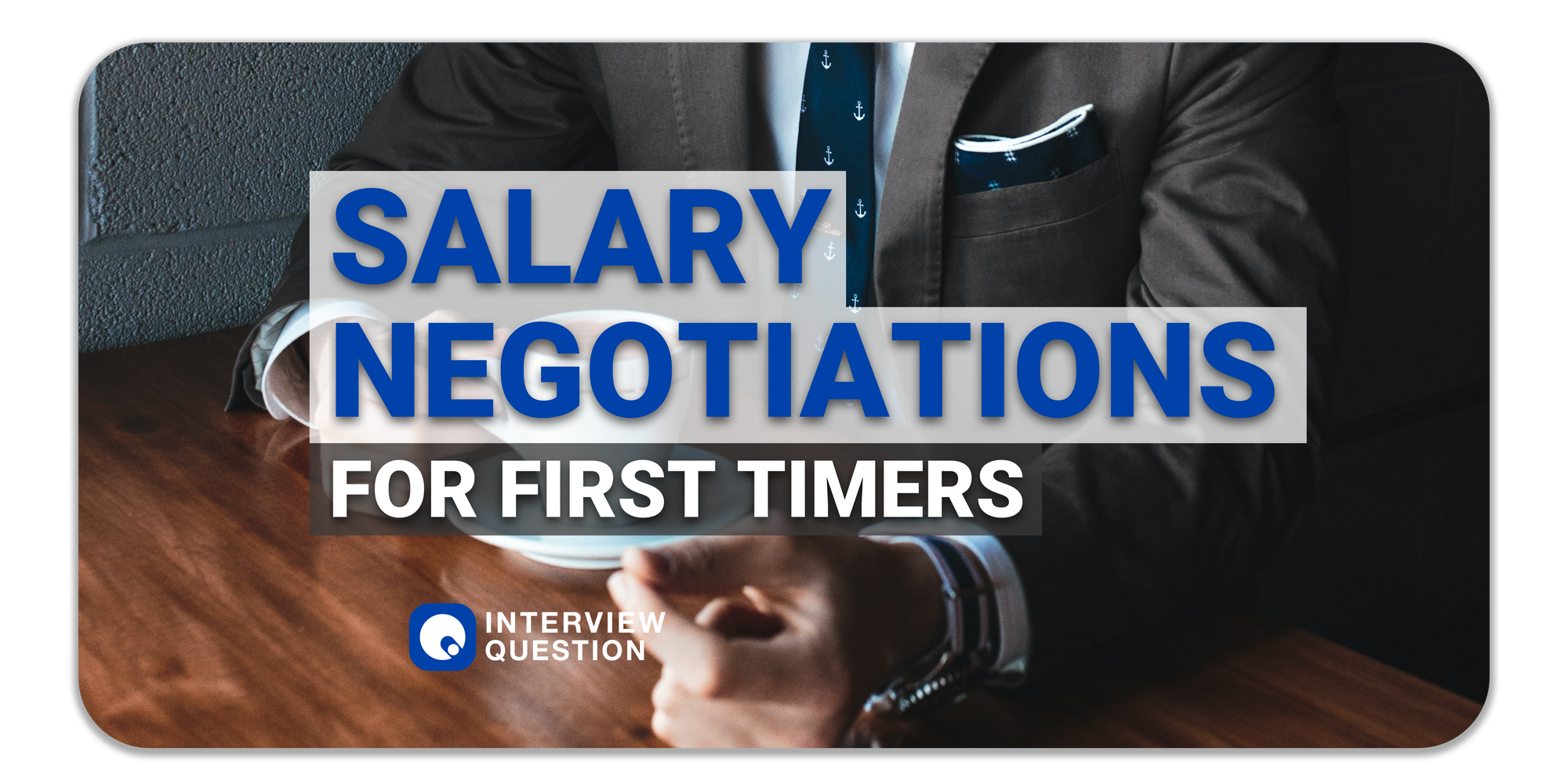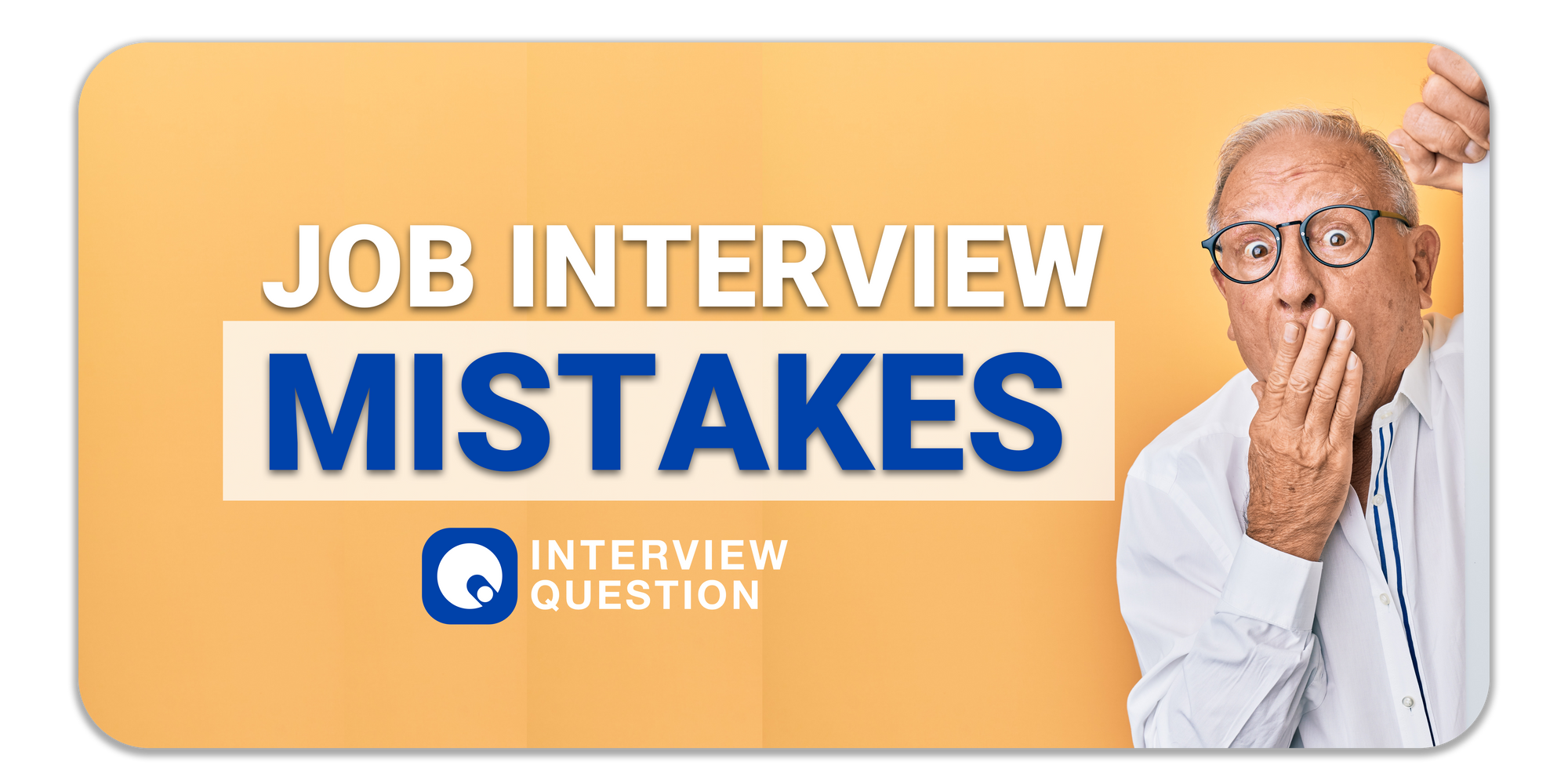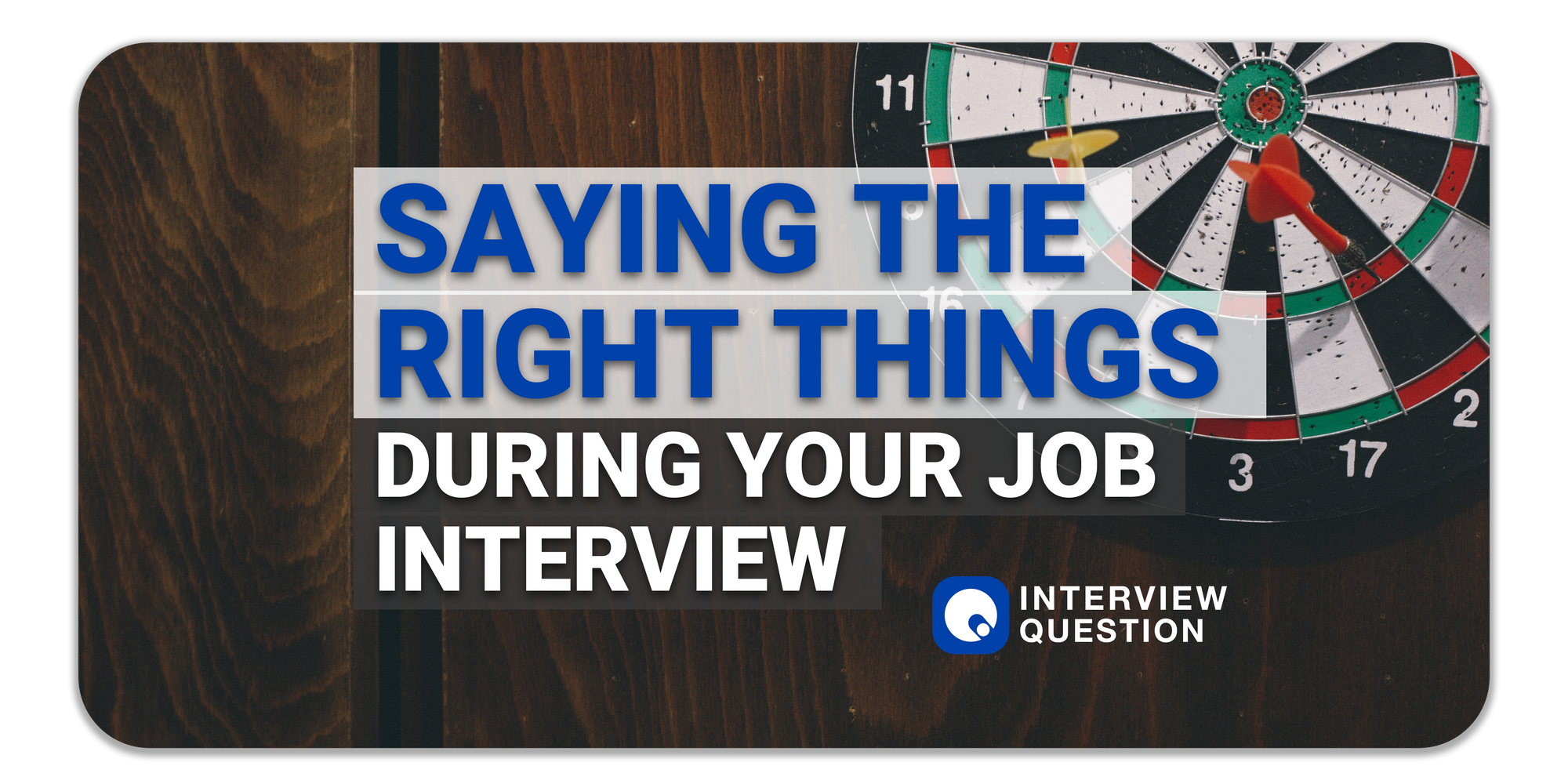What Are The Off Limit Topics for An Interview?
• Age • Religious Affiliation • Marriage, Sexual Orientation or Gender Identity • Disabilities, Medical Information and Health History • Race-based Hiring Practices • Social Security Number / Identity Number

In this article, I will be going over what types of topics should never be discussed during an interview which will apply in a general sense across all jobs. This is intended to provide some valuable insight into a few taboo topics during interviews as well as how to navigate potential illegal topics head-on.
Age
Age discrimination is illegal. It's not appropriate to ask someone their age. Age discrimination (or ageism) is a form of prejudice or discrimination directed at an individual because of his or her age.
In addition to discrimination based on age alone, interviewers are not allowed to ask about the year of the applicant's birth or whether they're over or under a certain age. They can only ask a prospective employee's age if the job requires a person who is at least a certain age
Ageism is frequently defined as the negative attitude towards an individual because he or she is old and may include the following:
- unfair treatment
- disproportionately lower pay
- preferential treatment for younger workers
- allowances that are specifically designed for older workers by both employers and unions
- preferential treatment in terms of promotions, training and career opportunities

The consequences of age discrimination for an errant employer can include loss of contracts, fines for repeated breaches of the law, and even criminal prosecution. In the long haul. being unreasonably biased does no good for the company's reputation.
In addition to possible legalities of ageism including the long-term impact on prospective employees as well as their employers, there is an understandable practical aspect. There are a number of reasons why an employer may not want a person with an older age to work for them. Be it for better team communication or to present a young vibrant image, the motivation for an employer is to present a positive, all-rounded perception lies in the delicate balance of pros and cons.
Religious Affiliation
It is not appropriate to ask questions about the specific religious beliefs of the applicant. The interviewer should remain neutral during the interview and avoid asking questions that may be considered offensive or may cause the interview to become more difficult and lack focus based on one perspective versus another.
The U.S. equal employment opportunity commission considers it an act of religious discrimination to ask questions that are not directly related to the motivations and abilities which are necessary for a right match to do the job. An applicant's religious preference is not necessarily related to their qualifications for a job; it does not affect the individual's ability to perform, his career goals, ambition, and so on. Thus, questions on religions are irrelevant.
An interviewer should also avoid asking the applicant if they could perform a job requirement on an equivalent religious holiday as the organization does not reserve time off for all religions. Practice sensitivity.
Sometimes, religion requires practical accommodation on the part of the employer. At certain times of the day, religious practices (praying, fasting, etc.) have to be observed and this may interfere with the ability of the employee to meet their responsibilities at work. For example, if a Jewish employee is responsible for supervising a kosher kitchen, he or she may have to leave work in order to go home and participate in religious rituals. If an applicant or current employee decides not to work on a major religious holiday, then employers may want to respect this decision. In order to respect the religious faith of the employee, employers may decide to change the work schedule on that particular day or reduce overtime so that it does not interfere with their religious practices.
Employers may choose not to allow applicants or employees time off during major religious holidays even if this activity is generally allowed for other reasons (medical appointments, dentist appointments, etc.). In such cases where an employer refuses to give an employee a day off because it is a religious holiday, whether paid or unpaid, this may be viewed as discrimination based on religion. Facilitating and being civil in the workplace is a positive way to improve the relationship between working staff and management.
Marriage, Sexual Orientation or Gender Identity
The interviewer should avoid asking questions about marriage, expressed sexual preferences or orientation. Despite not being illegal, some questions could be considered inappropriate. An interviewer should never ask if an applicant is gay, lesbian, straight, bisexual or transgender.
An employer may want to conduct background checks for purposes of verifying the applicant's identity (see above) without asking such a question as this would be discrimination based on sexual orientation or gender identity. However, I don't see how this should affect interview selection or employee retention since it does not affect on the job performance.
To be extremely crystal clear, an interviewer should never ask an applicant whether they are married or living with someone, whether they are single and available to date, or if they are in a relationship with someone at work (or even in their personal life).
It's a common misconception among employers that it's always appropriate to ask about marital status. Even though most employers are very comfortable with knowing the current relationship status of the applicant, marriage, divorce and separation are all personal choices. Interview questions posed must be sensitive and respect this aspect of the applicant.
An interviewer should further avoid asking questions about whether an applicant is currently having sex. Asking about gender and sexual preferences can be deemed overboard and this can further be claimed as harassment.
Now, let's go deeper into the topic of sex and gender. An employer is not allowed to ask questions that would reveal someone's gender identity and should not request information about surgery or hormone medication to anyone who has surgery related to their gender transition. They should avoid asking about homosexuality and prefer to instead reference the applicant's attitude and demeanor in conversations.
Generally, companies would either want to be:
- inclusive and accepting, or
- have a neutral perspective
This can create a slippery slope because it may not be understood by the interviewer or the applicant in the same way. Miscommunication leads to misunderstanding. An interviewer should not make assumptions about an applicant's sexual orientation and should leave this subject alone if they are unable to approach this topic with the applicant.
Disabilities, Medical Information and Health History
A disability is defined as a physical or mental impairment that substantially limits at least one major life activity of an individual.
At no point should an interviewer ask whether the applicant is disabled or has a health condition. An obvious example of someone with a disability is someone who uses a wheelchair, but many people have hidden or invisible disabilities. Others include: hearing impairments, back problems, cancer survivors and more. Applicants can't be forced to disclose this information unless it relates directly to the job role itself.
An employer should never ask about a disability during an interview. This is because it can result in the applicant becoming disqualified from the position. An interviewer should avoid making any comments towards the applicant that could be deemed offensive or inappropriate. They should also avoid asking if an applicant is able to perform specific job tasks by using their particular disability as a reason why they may not be able to accomplish certain tasks.
Inexperienced interviewers should be aware that it is unlawful for an interviewer to ask a question about an applicant’s physical or mental health which would indicate whether they are disabled. This applies even if it is posed as an innocent question or asked in a frank, honest or direct way as this gives the appearance of discrimination, even if it was unintended.

An employer may only ask about an applicant’s prior health conditions if they directly relate to the skills and abilities required by the job, and only after the applicant has been given a conditional offer of employment.
There are also many laws protecting the privacy of employees with regard to medical information. Employers cannot generally ask questions about current or prior health conditions unless they directly relate to the skills and abilities required for the position.
It is illegal to ask about disabilities and workers compensation claims because it is a violation of the Americans with Disabilities Act. An interviewer could request medical records regarding a disability only after offering the applicant a job. They should then ask for documentation from their healthcare provider indicating that the individual can work in a specific role at the company because of that disability. They cannot ask for documentation on another employee's health or medical information or for information regarding anyone else's disability unless it is related to the applicant's ability to perform specific job tasks and with reasonable accommodation.
Where possible, a company should make accommodations to make work easier for employees with disabilities.
If an employer must ask an applicant about their disability, they should not ask any questions that may normally be considered inappropriate or offensive when asked of a non-disabled person. An interviewer is not allowed to ask if they have a learning disability, mental illness, are deaf or are disabled in any way. Employers can't discriminate against and select applicants based on the basis of mental illness and emotional instability. They also cannot ask if they need additional time or accommodations from the job because of their disability.
Further, it is also inappropriate to request medical documents or ask if someone can perform a specific job task with or without reasonable accommodation. They should avoid asking questions related to pregnancies, miscarriages, abortions, terminations and fertility issues. Additionally, employers could get into trouble if they do ask about the applicant's mental health history and should never (ever) ask if they've ever been treated for depression or anxiety or considered themselves to be mentally ill. It is insulting too.
An employer should also avoid asking about any compensation an applicant may receive from Social Security Disability, Supplemental Security Income or Worker's Compensation. These governmental benefits are immaterial to their pursuit of employment and a disability should not disqualify an applicant from the job. Employers that do require this information should be prepared to show that the requested information is indeed material for employment.
Selecting or shortlisting applicants based on whether they are disabled or not is unfair. Official offers of employment can be skewed on such discriminatory tactics. At the end of the day, an employer has to assess the applicant's skills and abilities and how they relate to the specific job description. A candidate that is not disabled should have an equal chance of being selected as one that is disabled. If neither candidate can complete the job requirements, then it comes down to who is more qualified for those responsibilities or neither one should be selected. There is no best fit and compatibility, so the hiring process should then continue.
Race-based Hiring Practices
As with any other discrimination, companies that engage in race-based hiring practices would be subject to fines, legal action and penalties. Additionally, they could also face a potential department or state investigation and possibly lawsuit by the EEOC or another federal agency.
Since the topic of race inevitably leads to language, many companies reason they have to hire people of a certain race because other races cannot speak a certain language or an accent that the company needs its employees to have. Other people just have limited proficiency with the language. To answer this, some companies will create a list of languages for employees need to be able to speak and those that are not on the list will have a hard time getting rid of their accents or learning the language to keep up. Many companies turn this into a sort of self-fulfilling prophecy. Then, they tell their recruiters to only hire people who speak the languages on the list. Instead of looking at the "best fit", it becomes the "only fit".
There seems to be no law restricting a company from forming a curriculum or policies based on language and even if there was, it would be difficult to enforce. Employers can turn away applicants without giving a proper reason for rejection. Most of the time, employers just send a templated email if an applicant does not fit their bill to the T.
However, as soon as applicants are employed, they have to be treated like all other employees on the same job level when it comes to matters regarding compensation and benefits. In fact, they are to be treated equally in every respect at work. Employers must also not discriminate against any worker because he or she either cannot speak a certain language or speaks with an accent. The buck stops when the hiring process ends.
Social Security Number / Identity Number
Collecting SSN or ID numbers for the purpose of establishing the identity of the applicant and confirming the identity of an employee is necessary for the accurate documentation of manpower in the company and to facilitate tax processing. Identity numbers are also needed for the compilation of statistics.
Information about a Current or Former Employer
An interviewer should never ask questions that may be considered intrusive. It's never appropriate to ask an applicant about his or her present or former employers. This is, of course, because an applicant may have been fired and that particular experience could cause the interview to go awry and incorrectly skew the opinion of the interviewer based on only have "one side of the story" or only hearing out one perspective. This leads to potentially diminishing or increasing chances of receiving an offer through bias.
The interviewer should only focus on the skills and experience of the applicant and should not delve into other areas which might result in bad opportunities for both parties.
However, some companies conduct background checks where they discover this information on their own. Thus, an applicant can't control the information that's out there about him or her and the best they can do is to maintain a good score or have a reasonable excuse for failing to maintain one.
Drug and Alcohol Use
Employers should not ask someone about their drug or alcohol use in a job interview. An interviewer can't ask if an applicant takes drugs, drinks, smokes or uses tobacco products. This is important because it might expose the company to liability claims as well as damages from the personal impacts that could be received by other coworkers who may be affected by this behavior while on staff. It's illegal to inquire about previous drug use unless it is confined and strictly related to the job description or role itself.
An employer also cannot request an applicant provide a urine sample for drug testing or any other reason related to criminal purposes which may lead to failing a drug test.
Military Status
An interviewer should not ask questions that might reveal whether the applicant is serving in the armed forces, was discharged, the status of their military service or any questions relating to their military service. It's inappropriate for an employer to ask about past, current or future military service. They should focus solely on how long it took for the applicant to apply for the position after discharge or completion of military service. Furthermore, even though it may seem appropriate for employers to inquire as to the availability of certain applicants who are quality candidates based on their proximity to a specific job location, this is illegal if they are interviewing and hiring at bases in which employees must live on-site.
Credit Score
Credit information is protected under the Fair Credit Reporting Act (FCRA). An employer should not ask for your credit score during interviews and should not even suggest that they have this information. Employers may request a credit report but only if they currently have an open position, and the application requires this document before making a hiring decision, or they suspect job dishonesty or verify the applicant's identity or legal status in the U.S.


